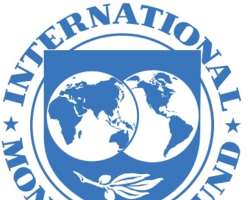IMF Staff Concludes 2014 Article IV and the Second Review Missions to Sudan

KHARTOUM, Sudan, September 17, 2014/African Press Organization (APO)/ -- An International Monetary Fund (IMF) team headed by Mr. Edward Gemayel visited Khartoum from September 3-16, 2014, to conduct the second review under Sudan's 2014 Staff-Monitored Program (SMP) and the 2014 Article IV Consultation discussions.
Mr. Lodewyk Erasmus, the IMF's Resident Representative in Sudan, issued the following statement in Khartoum at the conclusion of the mission:
“Economic conditions are mixed. Preliminary data suggest that economic growth, at 3.1 percent, supported by gold extraction and a strong harvest, is broadly in line with expectations for the year. Fiscal consolidation is helping to contain the large deficits and reduce reliance on central bank financing of the deficit. External imbalances are gradually declining as a result of last September's exchange rate adjustment and the improvement in the fiscal position. However, monetary policy needs to be further tightened. Inflation through the end of August has remained high at about 46 percent. Though this is partly due to the one-off effect of the September 2013 price adjustments of fuel prices, the injection of excess liquidity by the central bank through gold purchases at the parallel market rate is significantly contributing to inflation while also adding to the wide gap (52 percent) between the parallel and official exchange rates.
“Performance under the authorities' economic reform program is broadly satisfactory. All of the end-June quantitative targets, with the exception of the indicative target on reserve money growth, were met. Also, the authorities have met their end of June structural benchmarks, with the exception of the restructuring plan of Omdurman bank, which is underway. The mission welcomes the authorities' commitment to meeting the program's objectives. They include implementation of the required measures to ensure the end-year target on reserve money will be achieved, as well as fully implementing exchange rate flexibility to gradually close the gap with the parallel market. Full implementation of these policies is critical for achieving the authorities' objective of restoring macroeconomic stability.
“The implementation of the government's medium-term program faces challenges, including a lack of access to external financing, an unsustainable external debt burden, and economic and financial sanctions against the country. In addition, the impact of recent actions against a major international bank for violating U.S. financial sanctions is having a significant impact on foreign correspondent banking relations with Sudan, which could have a negative implication on medium-term growth.
“Resolving Sudan's unsustainable external debt is of paramount importance for the successful adjustment to the impact of South Sudan's secession, implementation of the government's poverty reduction policies, and for supporting inclusive growth. While Sudan has made some progress toward meeting the requirements for debt relief, the mission reiterated the importance of securing broad support for comprehensive debt relief from Sudan's bilateral external creditors. In this regard, the mission urged the authorities to reach out to their external creditors, including under the framework of the Joint Approach with South Sudan and the African Union High-level Implementation Panel. The mission welcomes the agreement between the governments of Sudan and South Sudan to treat the deadline for the “zero option” with flexibility.[1]
“The mission thanks the authorities for their hospitality, cooperation, and the frank and constructive discussions.”
The mission met with Minister of Finance and National Economy Bader Eldin Mahmmood Abbas Mukktar, Governor of the Central Bank of Sudan Abdelrahman Hassan Abdelrahman Hashim, and other senior government and central bank officials. The mission also met with members of the Finance and Budget Committee of the National Assembly, as well as donors and members of the business community.
[1] In September 2012, Sudan and South Sudan reached the so-called “zero option” agreement under which Sudan would retain all the external liabilities after the secession of South Sudan, provided that the international community gave firm commitments to the delivery of debt relief to Sudan within two years. Absent such a commitment, Sudan's external debt would be apportioned based on a formula to be determined.
